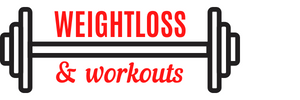Maximizing Weight Loss Potential: How Peanut Butter Fits into Your Diet Plan
As someone who has struggled with weight management, I’ve often questioned if peanut butter could truly be a friend or foe in my weight loss journey.
Surprisingly, the answer isn’t as straightforward as one might think. While peanut butter is packed with nutrients that can support weight loss goals, there are also factors to consider that could potentially hinder progress.
So, before you decide to swap out your usual spread, let’s uncover the truth behind the role of peanut butter in your quest for a healthier weight.
Continue Reading to Understand These Key Points:
- Peanut butter’s protein content supports fullness, muscle preservation, and fat loss during weight management.
- Pairing peanut butter with whole foods enhances satiety and aids in calorie control.
- Choosing natural peanut butter without added sugars is crucial for a balanced diet.
- Incorporating peanut butter in moderation benefits weight loss success and overall health.
Protein Content in Peanut Butter
Containing approximately 8 grams of protein in a 2-tablespoon serving, peanut butter is a great plant-based protein source for those looking to lose weight. Protein is vital for increasing fullness, reducing cravings, and preserving muscle mass during weight loss.
Including protein-rich foods like peanut butter in a weight loss plan can help maintain lean muscle while promoting fat loss. Protein also supports metabolism, calorie burning, and overall satiety, aiding in weight management.
Nutritional Variations in Peanut Butter
Comparing peanut butter to almond butter reveals significant nutritional differences. Almond butter has more fiber and less saturated fats, aiding in digestion and promoting satiety. On the other hand, peanut butter is higher in protein, beneficial for muscle repair and growth.
Almond butter is rich in vitamin E, offering antioxidant properties for overall health. Both spreads have unique health benefits, so the choice depends on personal preferences, dietary goals, and health conditions.
It’s crucial to consider these factors when adding either spread to your diet to meet nutritional needs and enhance well-being.
Incorporating Peanut Butter Into Diet
Incorporating peanut butter into a balanced diet can be beneficial for obtaining essential nutrients that support weight loss goals. Peanut butter provides healthy fats, protein, and fiber, making it a valuable addition to meals for weight management.
The protein and healthy fats in peanut butter can help control appetite and increase satiety, leading to reduced calorie intake.
To maximize weight loss benefits, be mindful of portion sizes and pair peanut butter with whole grains, fruits, or vegetables for satisfying and nutritious meals. Choose natural peanut butter without added sugars or unhealthy oils for a balanced diet.
By incorporating peanut butter strategically and in moderation, it can be a valuable part of a successful weight loss plan.
Peanut Butter for Muscle Recovery
Peanut butter’s protein content is valuable for muscle recovery after workouts, aiding in the repair and growth of muscles. The protein in peanut butter is essential for rebuilding muscle fibers stressed during exercise.
The healthy fats in peanut butter also support muscle repair post-workout. Including peanut butter in post-workout snacks or meals helps replenish energy stores and promote muscle recovery, enhancing muscle strength and fitness goals.
Incorporating protein-rich peanut butter in post-exercise nutrition can improve recovery time and overall muscle health, benefiting those seeking to optimize muscle recovery and achieve fitness objectives.
Peanut Butter for Heart Health
After discussing peanut butter’s benefits for muscle recovery, it’s important to address its positive impact on heart health.
Peanut butter contains monounsaturated and polyunsaturated fats that lower bad cholesterol levels, promoting a healthy heart. Regular consumption of peanut butter, as part of a balanced diet, can reduce the risk of cardiovascular diseases.
The antioxidants in peanut butter contribute to overall heart health, emphasizing its importance in a healthy diet. Opting for natural peanut butter without added sugars or unhealthy oils supports heart health effectively.
Including peanut butter in moderation is beneficial for maintaining healthy heart and cholesterol levels, making it a valuable addition to a balanced diet prioritizing heart health.
Final Thoughts
Peanut butter can be a powerful ally in your weight loss journey, serving as a tasty and satisfying source of nutrients to support your goals.
With its protein-packed goodness and heart-healthy fats, peanut butter is like a loyal companion guiding you toward a slimmer, healthier you.
So, don’t hesitate to spread some peanut butter love on your weight loss path and watch the pounds melt away!







Great article on peanut butter’s benefits! I’m curious if there’s an optimal time to consume peanut butter for muscle recovery. Should it be pre-workout, post-workout, or does it not matter?
From what I know, post-workout is the best time for protein intake to aid in muscle recovery!
Actually, studies suggest that both pre- and post-workout protein intake can be beneficial for muscle synthesis.
Loved the comparison between peanut and almond butter. It’s crucial to choose the right nut butter for your dietary needs!
been shifting towards a plant-based diet and honestly finding out peanut butter is such a good source of protein is super helpful. it’s going into everything now, from smoothies to sandwiches. anyone got creative recipes?
While the article rightly points out the heart health benefits of peanut butter due to unsaturated fats, it’s important to highlight that moderation is key, especially considering the high calorie content. Excessive consumption without adjusting overall dietary intake can lead to unwanted weight gain, potentially offsetting the cardiovascular benefits. As always, it’s about balancing your diet to suit your specific health needs.
Peanut butter – cheaper than therapy and almost as effective at making me happy!
Peanut butter might be good for some but on a keto diet, you gotta watch out for those carbs. Not all that glitters is gold.
It’s wonderful to learn about the heart health benefits of peanut butter. As someone who’s always looking for natural ways to maintain health, incorporating peanut butter into my diet seems like a delicious choice. I appreciate the article highlighting the importance of unsaturated fats and their role in heart health. This has inspired me to explore more plant-based sources of nutrients.